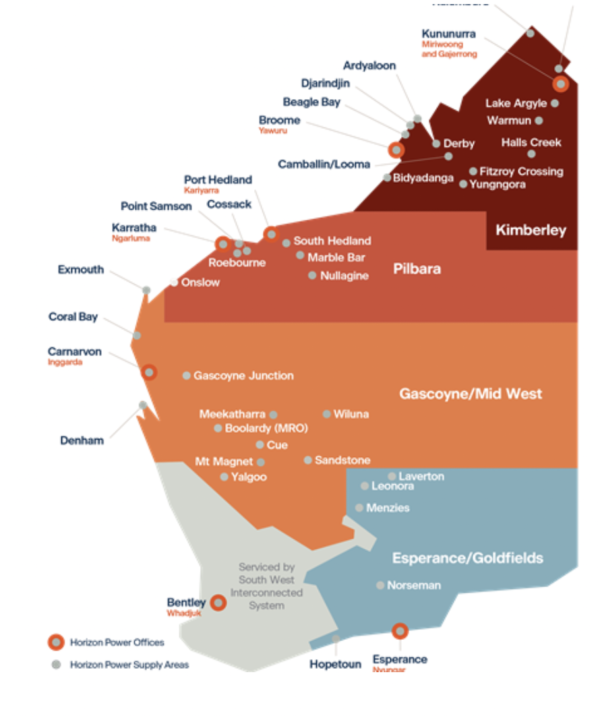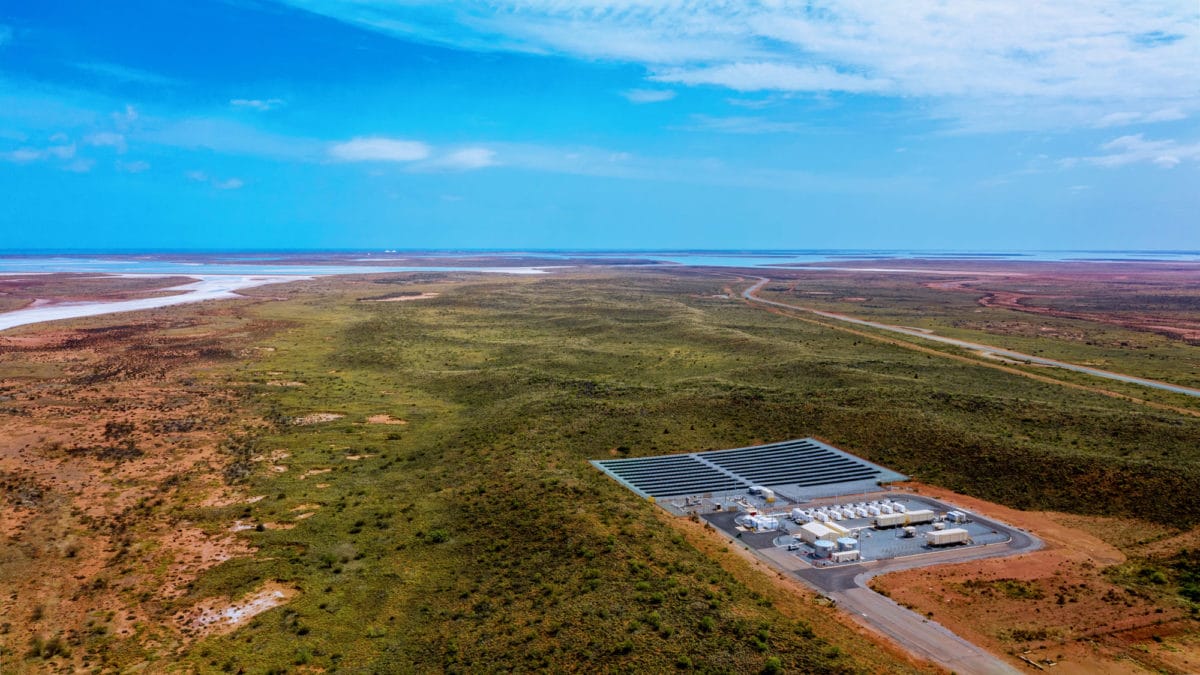Today around 60% of Horizon Power’s customers face limits on the amount of rooftop solar they can install, if they can install it at all.
But following the success of Horizon Power’s Onslow microgrid, in which the coastal town near Exmouth was powered by 100% renewable energy for 100 minutes using the energy management technology, the company will now deploy the technology across the state.
The technology, called a Distributed Energy Resources Management System, or, attractively, DERMS, can monitor and orchestrate generation from distributed customers in real-time, integrating it with the utility’s other assets.
It does this by using predictive analytics, including weather pattern analysis, forecasting energy generation and demand to ensure the energy system remains stable.
In Onslow, the deployment of the technology enabled more than four times the amount of rooftop solar to be installed compared to a traditional energy system, Horizon Power said.
It is hopeful the other areas it services – which include the North West Interconnected System (NWIS) in the Pilbara, as well as minor networks and microgrids outside the South West Interconnected System (SWIS), will fare similarly.

Image: Horizon Power
“This deployment is ground-breaking as it enables rooftop solar, customer batteries, electric vehicles, centralised solar and batteries, and the traditional centralised power station to all work together in a coordinated way to maximise renewable energy supply, without adversely impacting power quality and reliability,” Horizon Power’s General Manager of Technology and Digital Transformation, Ray Achemedei, said.
“Deploying a distributed energy resources management system will increase solar access for our customers, lower their energy bills, and help reduce emissions,” he added.
The energy management system will be deployed in Broome at the start of next year, where rooftop solar limits remain a struggle for customers.
The technology will then be progressively rolled out across all Horizon Power’s other systems by mid-2024.
“This is the technology that will underpin the transition to 100% renewable towns,” Achemedei said.
This content is protected by copyright and may not be reused. If you want to cooperate with us and would like to reuse some of our content, please contact: editors@pv-magazine.com.









By submitting this form you agree to pv magazine using your data for the purposes of publishing your comment.
Your personal data will only be disclosed or otherwise transmitted to third parties for the purposes of spam filtering or if this is necessary for technical maintenance of the website. Any other transfer to third parties will not take place unless this is justified on the basis of applicable data protection regulations or if pv magazine is legally obliged to do so.
You may revoke this consent at any time with effect for the future, in which case your personal data will be deleted immediately. Otherwise, your data will be deleted if pv magazine has processed your request or the purpose of data storage is fulfilled.
Further information on data privacy can be found in our Data Protection Policy.